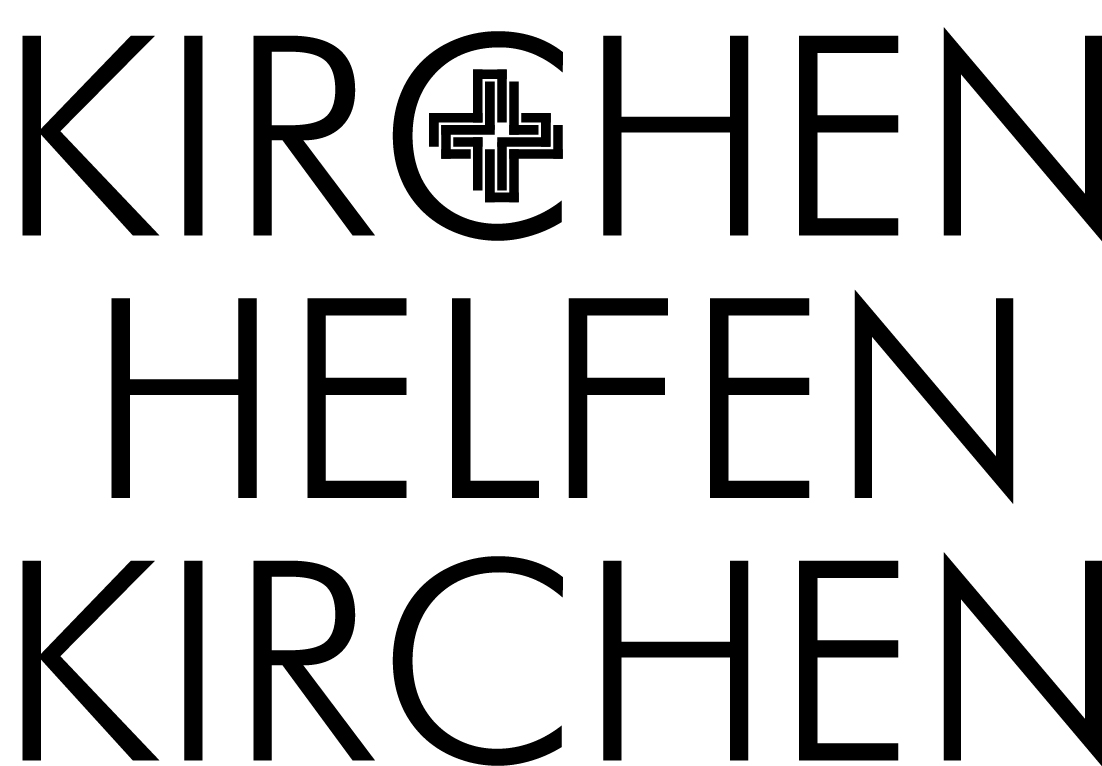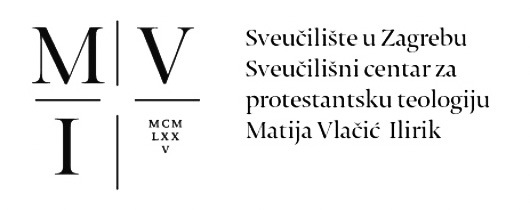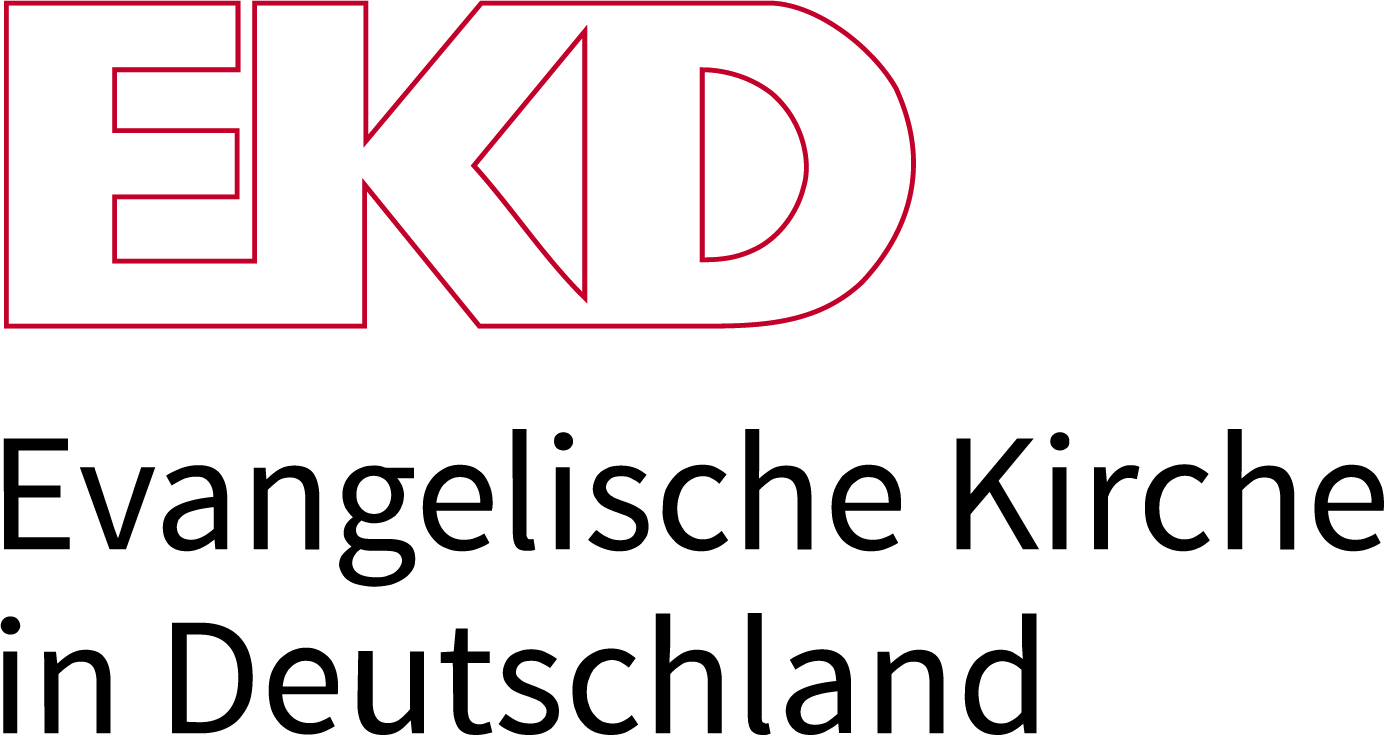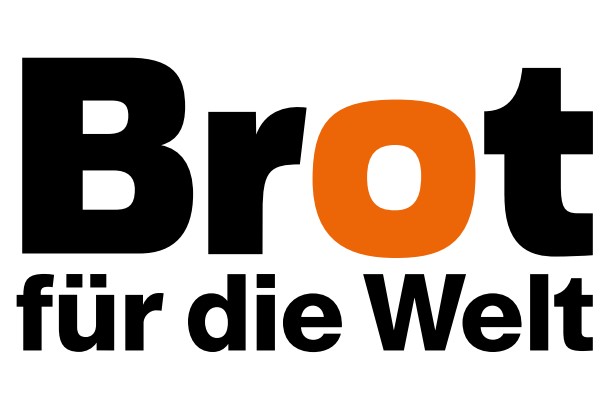Library “Sraz”
The Library “Sraz” is primarily conceived as a space for selected literature reflecting the development of Balkan, particularly post-Yugoslavian, contextual theology, with a focus on political-theological and theological-liberatory perspectives. We are thankful to the authors and publishers for their support in promoting and publishing this kind of literature.
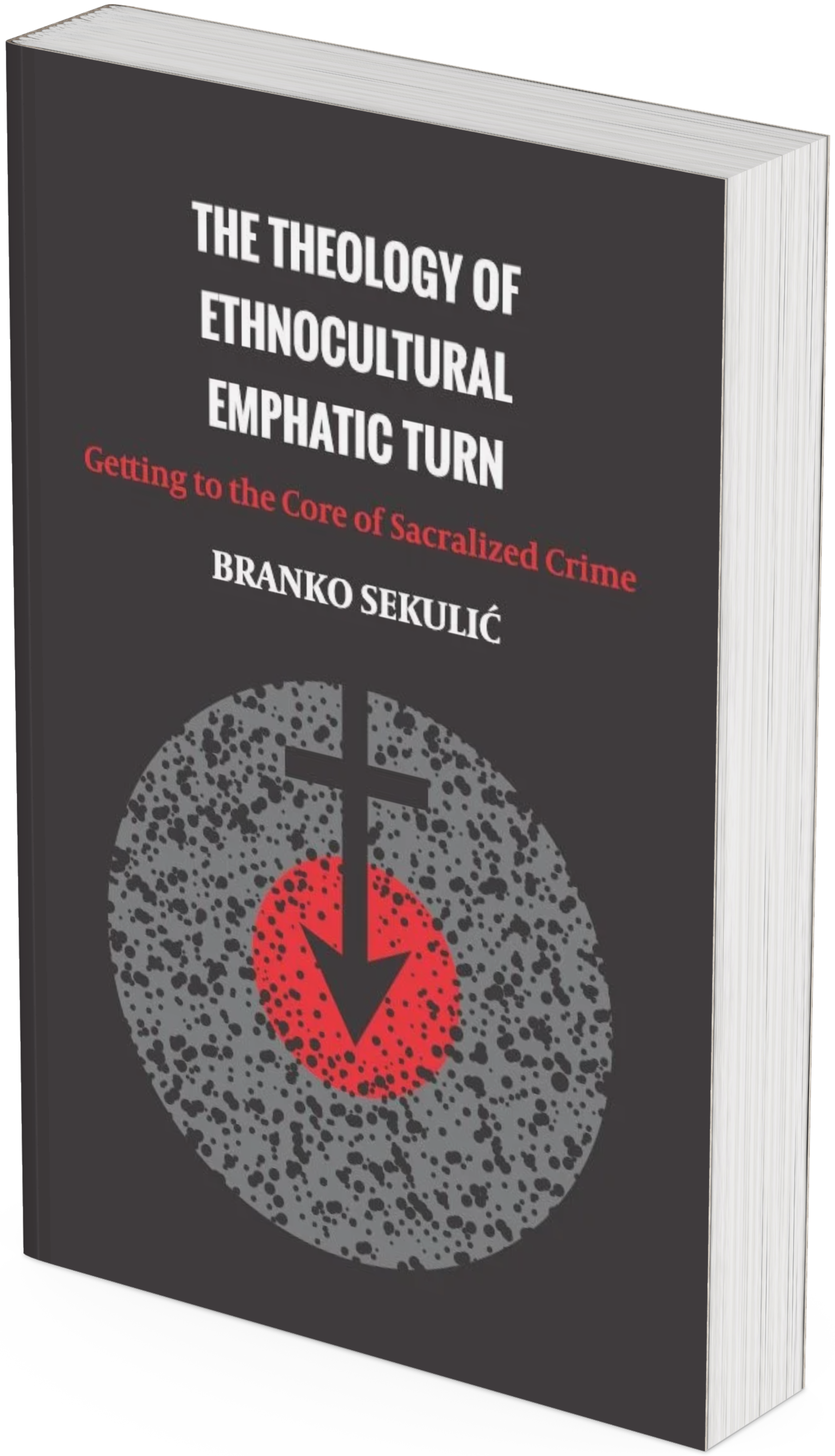
Branko Sekulić, The Theology of Ethnocultural Empathic Turn: Getting to the Core of Sacralized Crime, Lanham, MD: Lexington Books/Fortress Academic, 2024.
“The Theology of Ethnocultural Empathic Turn: Getting to the Core of Sacralized Crime delves into the roots of ethnoreligious tensions in the former Yugoslav territories, and it provides a comprehensive understanding of this specific politico-religious issue, exposing how the sacralization of ethnonational mythology influences present-day conflicts. The author meticulously analyzes the intertwining of (ethno)totalitarianism and (ethno)clericalism in the mentioned areas. Transitioning from historical analysis to proposing a solution, the author advocates for an “ethnocultural empathic turn,” integrating ethnocultural empathy as a branch of social psychology with the example of Jesus’s turn in Matthew 15:21–28. Highlighting individuals like Bishop Srećko Badurina and layperson Franjo Starčević, who embody an authentic evangelical spirit amidst the former Yugoslav conflict, the book makes a compelling case for liberation from ethnoreligious captivity. This book contributes significantly to developing the first Balkan contextual theology, drawing upon new political theology and theologies of liberation.” (Paul Mojzes, emeritus of Religious Studies Rosemont College, Pennsylvania, USA)
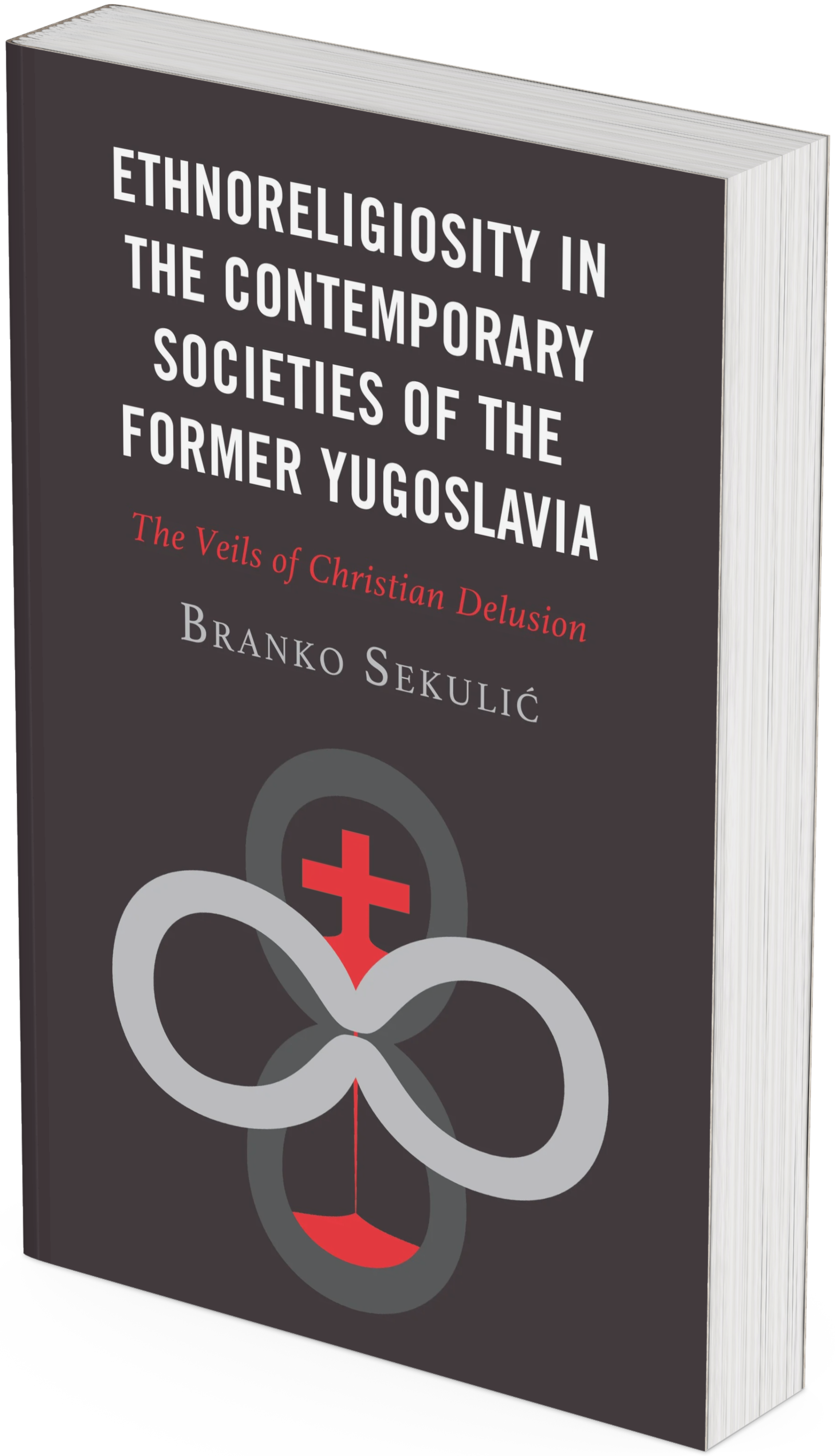
Branko Sekulić, Ethnoreligiosity in the Contemporary Societies of the Former Yugoslavia: The Veils of Christian Delusion, Lanham, MD: Lexington Books/Fortress Academic, 2022.
Using Christian communities in the former Yugoslavia as a case study, Branko Sekulić introduces the concept of ethnoreligiosity to the theological discussion in order to resolve the confusion that occurs when scholars talk about the concepts of ethno-religion or ethnoreligion. Ethno-religion/ethnoreligion came to describe the phenomenon of ethnic religion as a certain cultural specificity and which by itself has no negative connotation, but due to the lack of a better expression, it has been used as a term for the phenomenon of ethnic and religious conflict and discrimination. In that sense, ethnoreligiosity can be defined as a phenomenon resulting from the usurpation of the religious aspect of human life by the ethnic one, or more precisely, it emerges as a consequence of an ethnic (ethnonational) ideological overtaking of the structures of the religious organization. It takes place through the attempt to give sacral connotation to a particular ethnonational myth as an integral part of ethnonational ideology, with the result that religious feeling is no longer generated on a religious but primarily on an ethnonational basis. By understanding the proper definition and manifestation of ethnoreligiosity, one will have the opportunity to discern the basic components of this phenomenon not only within the countries of the former Yugoslavia but in other countries as well.
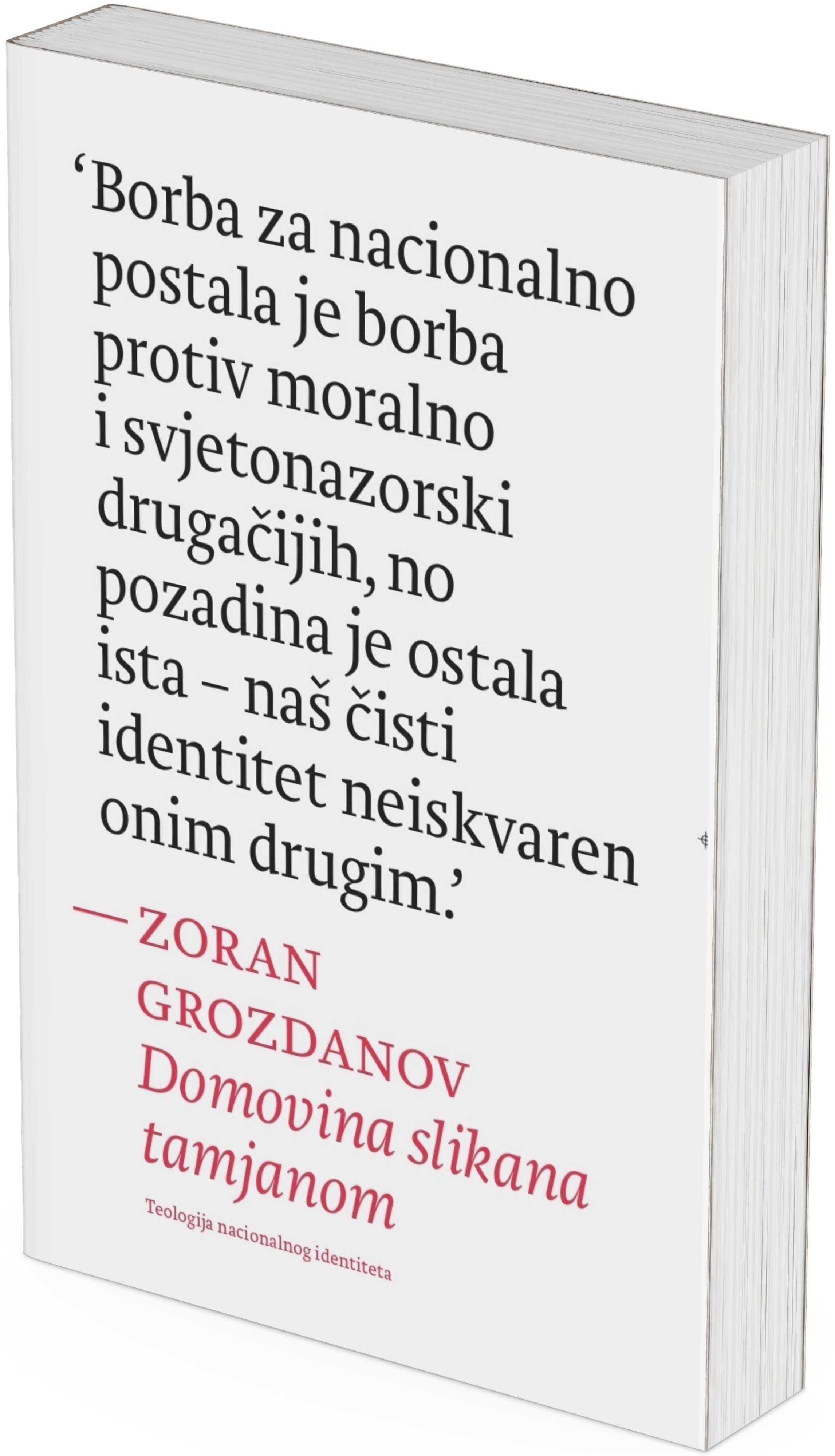
Zoran Grozdanov, Domovina slikana tamjanom: teologija nacionalnog identiteta [Homeland Painted with Incense: Theology of National Identity], Rijeka: Ex libris, 2023.
“This book represents an innovative and long-awaited introduction to political theology in the Croatian context:” (Stipe Odak, Catholic University of Leuven),
“This book represents the closest that the post-Yugoslav regions have managed to come to the development of a concrete political-theological discourse aimed at deconstructing the (ethno)nationalistic narrative that has comfortably settled within religious communities.” (Branko Sekulić, Ludwig-Maximilian University in Munich)
“Theology cannot be a servant of nation and state. Instead, it should think freely and critically about all human identities. By pointing out the mistakes of nationalist theologians, Grozdanov simultaneously provides guidelines for new theological thought.” (Franciscan Drago Bojić, Franciscan Monastery in Jajce)
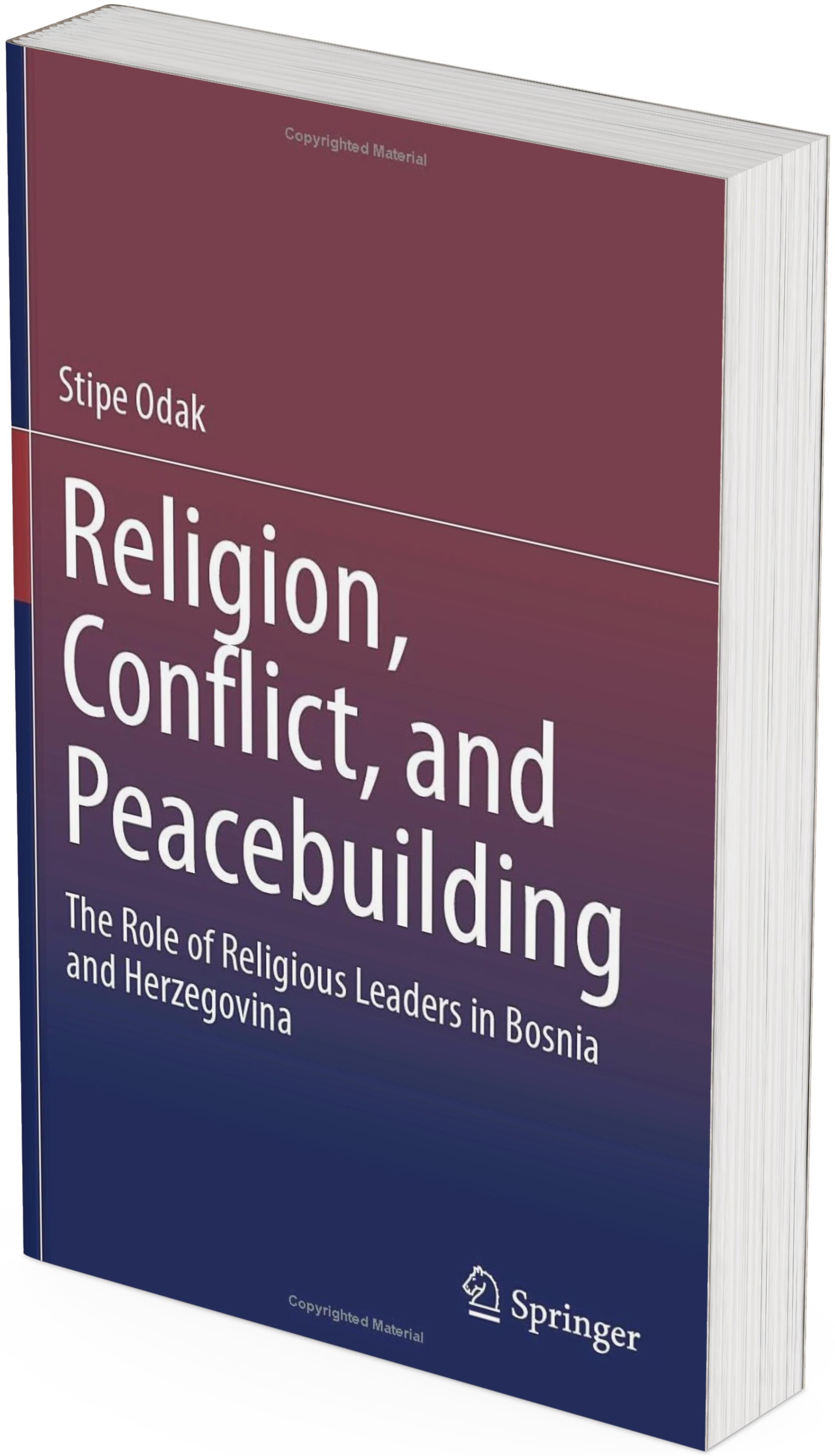
Stipe Odak, Religion, Conflict, and Peacebuilding: The Role of Religious Leaders in Bosnia and Herzegovina, Cham: Springer, 2021.
This book provides fresh insights into the role of religious leaders in conflict transformation and peacebuilding. Based on a large dataset of interviews with Christian and Muslim leaders in Bosnia and Herzegovina, it offers a contextually rich analysis of the main post-conflict challenges: forgiveness, reconciliation, and tragic memories. Designed as an inductive, qualitative research, it also develops an integrative theoretical model of religiously inspired engagement in conflict transformation. The work introduces several new concepts relevant to peacebuilding theory and practice, such as Residue of Forgiveness, Degree Zero of Reconciliation, Ecumene of Compassion, and Phantomic Memories. The book, furthermore, proposes two correlated concepts – “theological dissonance” and “pastoral optimization” – as theoretical tools to describe the interplay between moral ideals and practical limitations. The text is valuable for religious and social scholars, especially those interested in peace, conflict, and justice. From the methodological standpoint, it is an original and audacious attempt at bringing together theological, philosophical, and political narratives on conflicts and peace through the innovative use of the Grounded Theory approach.
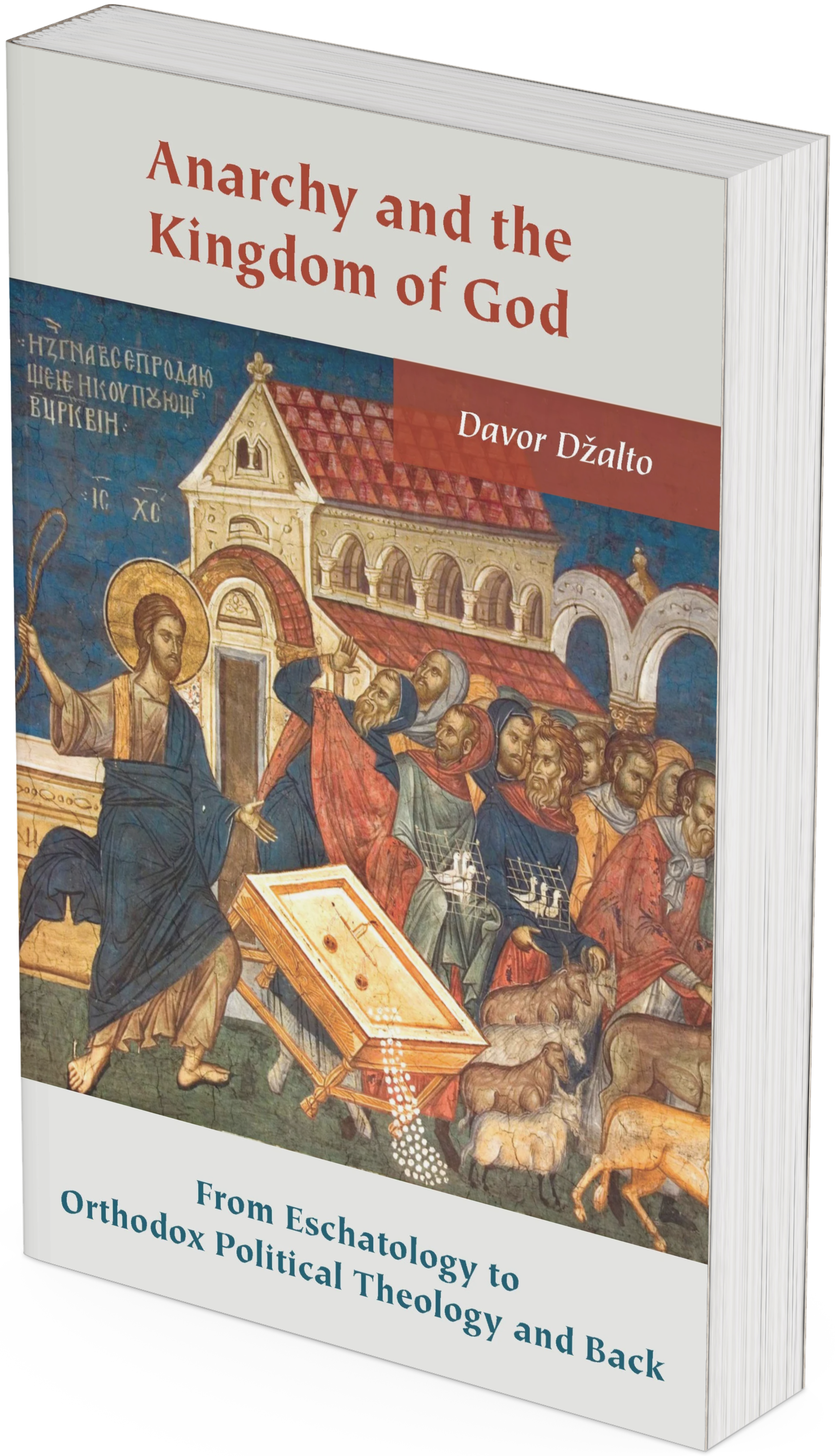
Davor Džalto, Anarchy and the Kingdom of God: From Eschatology to Orthodox Political Theology and Back, New York: Fordham University Press, 2021.
Anarchy and the Kingdom of God reclaims the concept of “anarchism” both as a political philosophy and a way of thinking about the sociopolitical sphere from a theological perspective. Through a genuinely theological approach to the issues of power, coercion, and oppression, Davor Džalto advances human freedom—one of the most prominent forces in human history—as a foundational theological principle in Christianity. That principle enables a fresh reexamination of the problems of democracy and justice in the age of global (neoliberal) capitalism.
For the first time in academic literature, the book develops a comprehensive and critical examination of Orthodox political theologies, while constructing a convincing case for an “anarchist” political theologies, while constructing a convincing case for an “anarchist” political theology as the only consistent approach to the sphere of politics from on Orthodox Christian perspective.
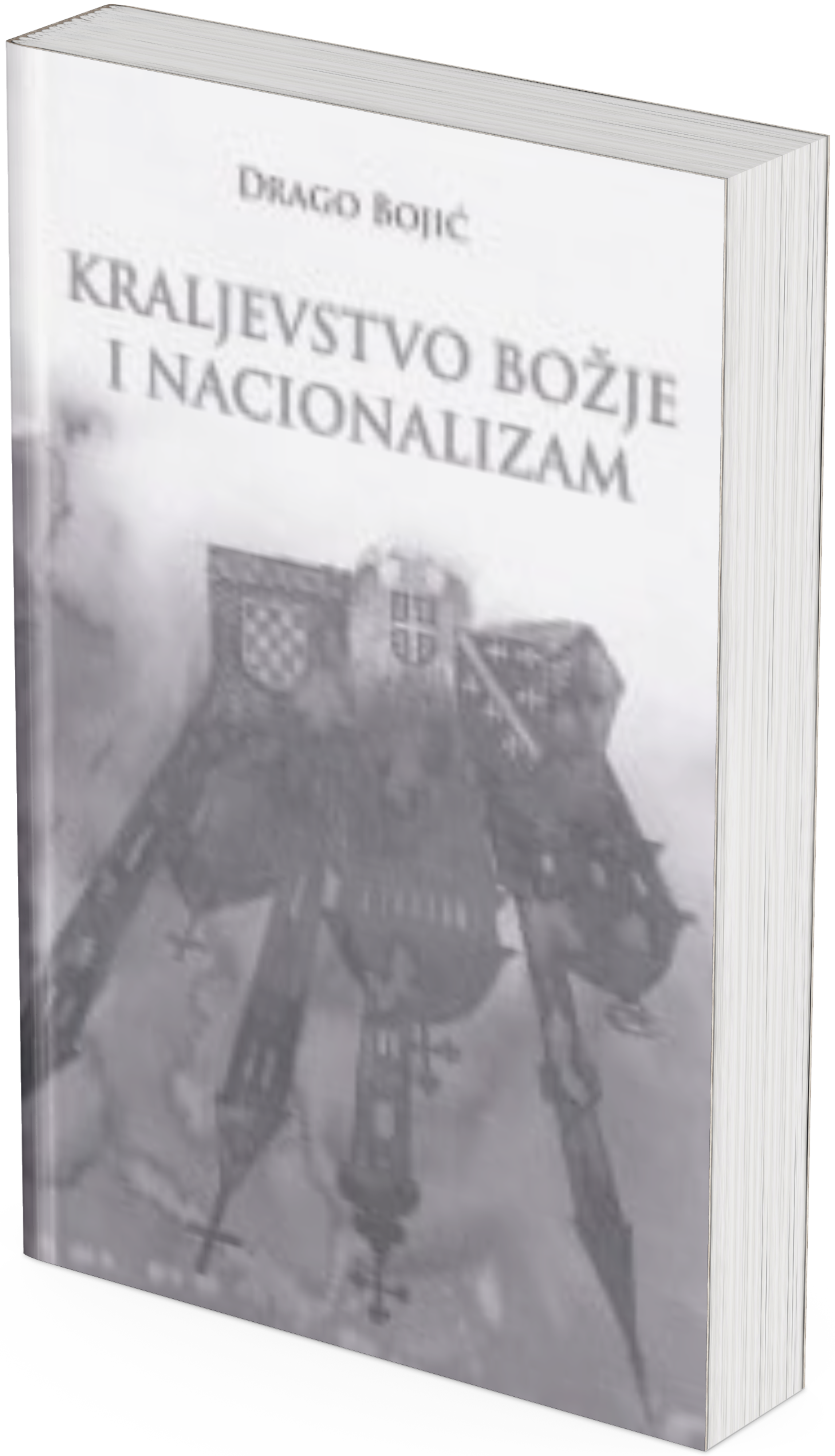
Drago Bojić, Kraljevstvo Božje i nacionalizam [The Kingdom of God and Nationalism], Mostar: Centar za kritičko mišljenje, 2018.
“If I were to point out a common thread running through practically all – thematically exceptionally diverse – essays, critical analyses, and public appearances of Drago Bojić, it would be precisely the pronounced insistence on the demobilization of society. On shedding uniforms and discarding weapons. On extinguishing combat passions. On disabling alarm sirens. On renouncing obedience to political and religious commanders. Almost the entire body of work of this writer, in each of its elements, contains as an ethical constant an apparent demand for demobilization articulated through an unequivocal warning about the perils of post-war conditions and relentless criticism of political, religious, and cultural elites whose ambition – to a large extent realized – is to organize the entire society according to the model of a military fortress and supply it with a mentality reminiscent of a border outpost. This striking intellectual and moral gesture so distinctly marks Bojić’s public work that it can almost be considered a specific authorial direction, akin to – if we understand the matter broadly – a theology of disarmament.” (Viktor Ivančić)
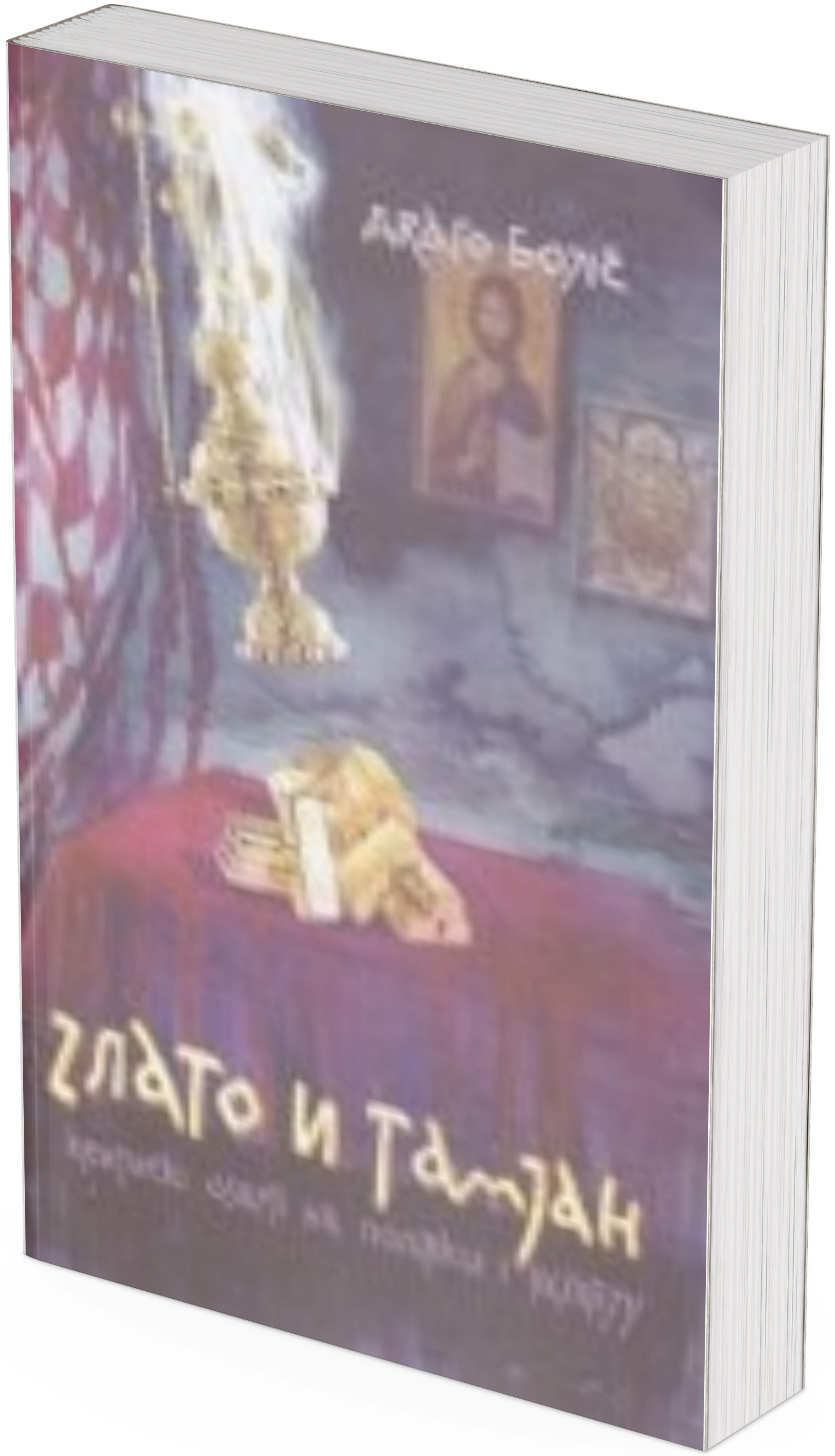
Drago Bojić, Zlato i tamjan [Gold and Frankincense], Mostar: Centar za kritičku misao -Tačno.net, 2016.
This book by Dr. Fra Drago Bojić, a Bosnian Franciscan, theologian, and publicist, gathers selected texts and interviews spanning around 300 pages. These pieces were published in print and electronic media between 2010 and 2016. The book is a lasting testament to critical thought in the societal context where such thinking is almost unimaginable. “Gold and Frankincense” is divided into three parts: “Politics: Inhumane and Unethical,” “Religion: Anti-faith and Without Solidarity,” and “Alone/Critically Toward Truth.” The common thread running through Bojić’s writings and interviews in all chapters is an articulated (social) critique of the existing order. This involves questioning the foundations upon which such an order rests and encountering resistance from the author’s critics across various sectors, especially within the church. This is because many local dignitaries there flirt with social phenomena and occurrences that should be constantly problematized and questioned according to the evangelical mission. A significant portion of the book is dedicated to Bojić’s thorough critique of the political representatives of Bosnian Croats. This places the author among the few intellectuals who openly speak about the totalitarian spirit of the ruling ideological clique. This clique has aggressively secured and fought for a party-state monopoly over almost all spheres of public life.
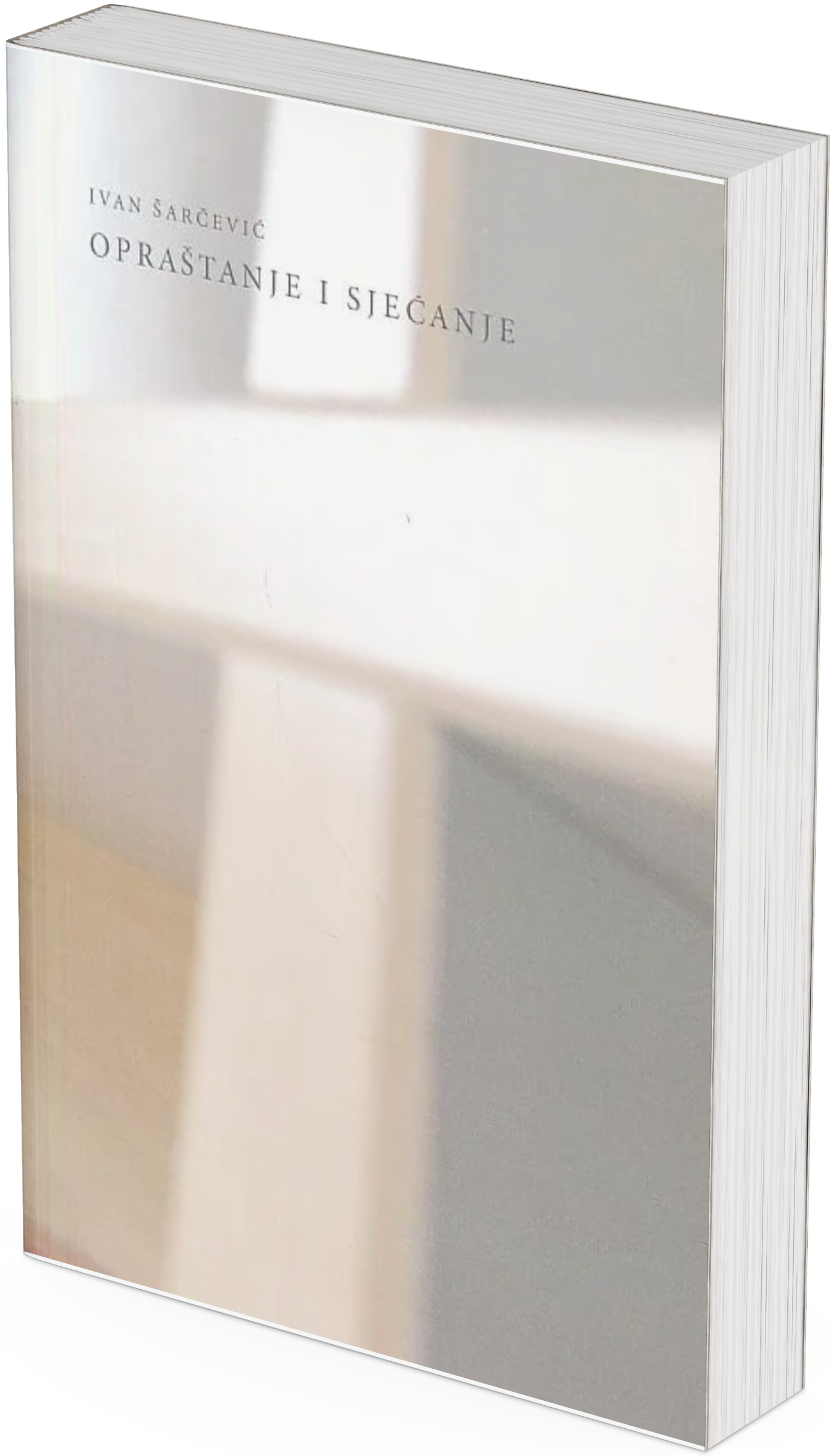
Ivan Šarčević, Opraštanje i sjećanje [Forgiveness and Memory], Rijeka: Ex libris, 2021.
The book of Friar Ivan Šarčević, Opraštanje i sjećanje (Forgiveness and Memory), is the result of his multi-year, even multi-decade effort to understand and articulate these two concepts, which he grounds in his theological perspective. However, he draws their implications for the entire social and political sphere. Although rooted in theology, this book significantly contributes to understanding the relationships that emerged during and after the war, extending beyond the theological realm. The book is accompanied by a foreword by Zoran Grozdanov titled “Teologija neispričanih ljudi” (The Theology of Untold Stories) and an afterword by Professor from Yale University, Miroslav Volf, titled “U razilaženju – zagrljaj” (In Parting – Embrace).
“Healthy individuals and communities are those who narrate their past guided by truth and justice, taking responsibility for the consequences of their words and stories. They are capable of confronting their past, both the experiences of suffering and their dangerous memories, and building their identity without myths of eternal victimhood and impeccability, but also without forgetting, which is the result of forgiveness. People who forgive, forget, and do not cling to fruitless data and knowledge are mentally healthier and more ethical; they are also more compassionate toward the victims beyond their community”. (Ivan Šarčević)
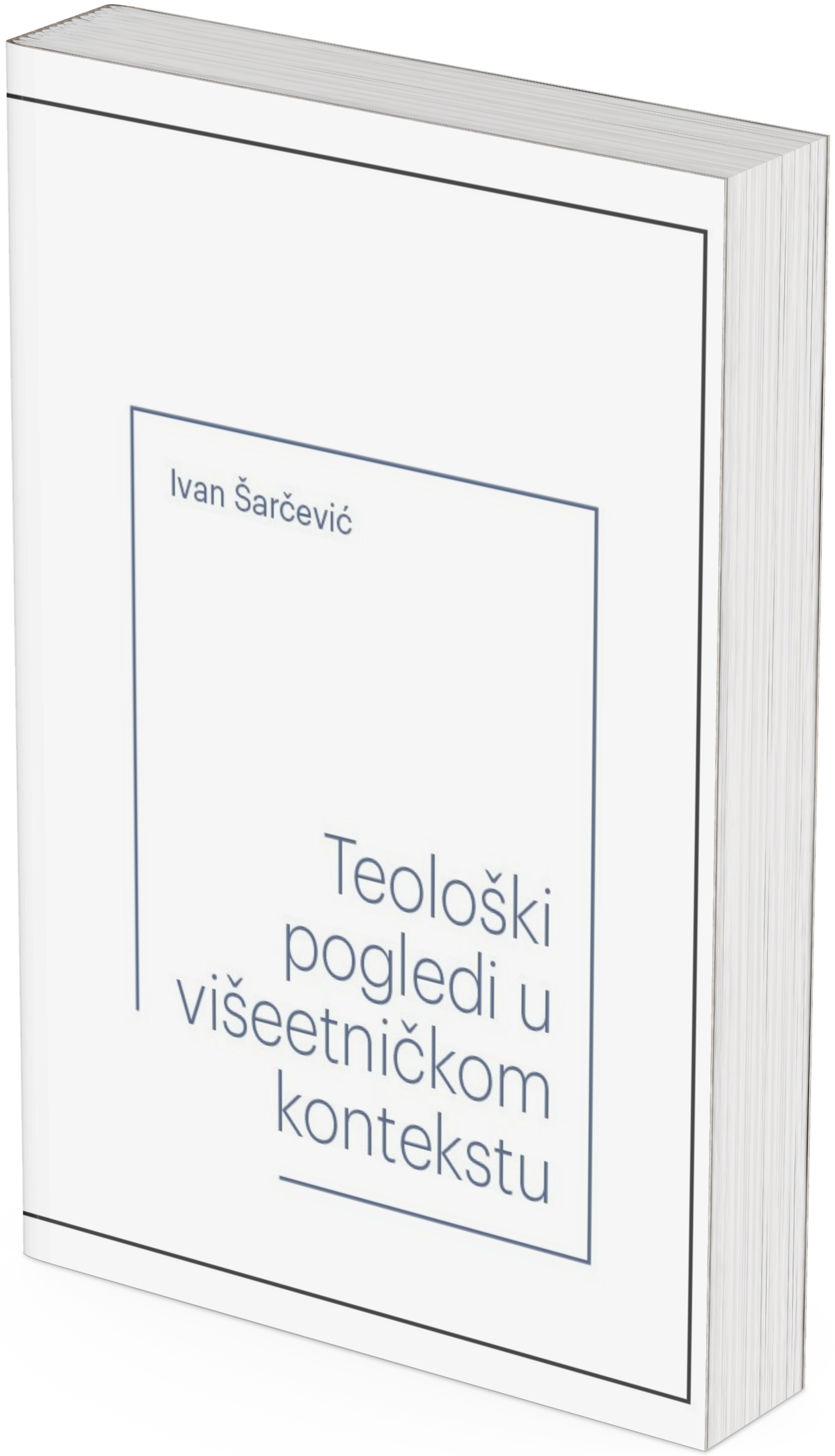
Ivan Šarčević, Teološki pogledi u višeetničkom kontekstu [Theological Perspectives in a Multiethnic Context], Tešanj-Rijeka: Centar za kulturu i obrazovanje-Ex libris, 2022.
“In this book, Šarčević’s texts, written and individually published over almost a quarter of a century, from 1998 to the present, are compiled. Brought together in this book in thematic and conceptual proximity as a coherent whole, they now reveal a long and well-thought-out continuity of Šarčević’s interest in the possibilities offered by the so-called contextual theologies, seen as a significant legacy of the modern, post-conciliar-spirit-in-Christian theology. What is particularly important, and cannot be emphasized enough, is that this theologian innovatively develops and enriches these possibilities by applying them to his narrowest, concrete life context. The theology in a multiethnic context, as indicated by the book’s title or slightly modified as Bosnian-Herzegovinian contextual theology. Fra Ivan Šarčević is indeed the creator and initiator of this entire ‘system’, devotedly committed as a researcher and author. He is the sole individual of this kind and format in our midst.” (Ivan Lovrenović)
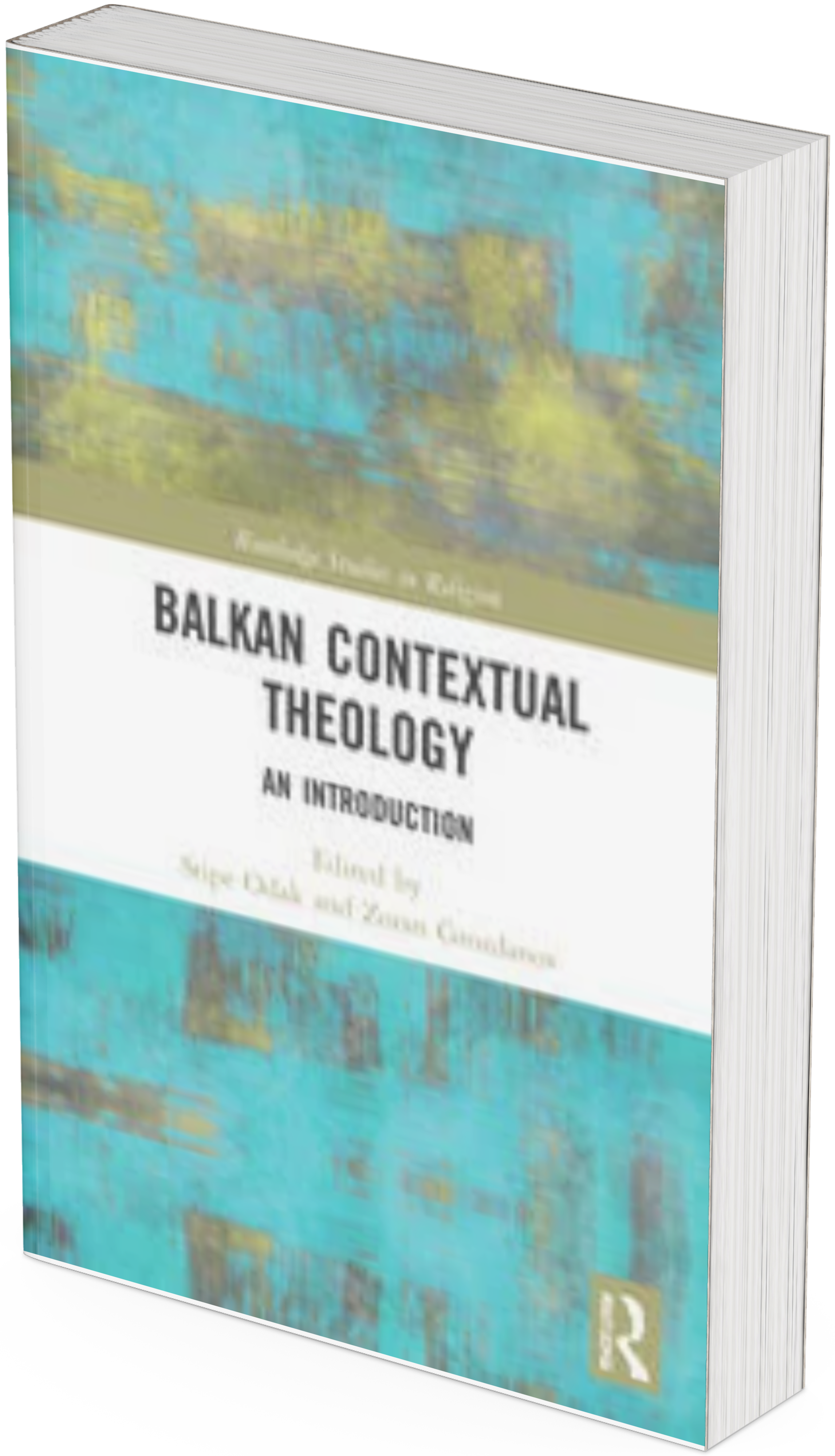
Stipe Odak, Zoran Grozdanov (eds.), Balkan Contextual Theology: An Introduction, London-New York: Routledge, 2022.
“Balkan Contextual Theology is a rich book, as polyphonic as is the Balkans, that divides and unites. It is about liberated religions and nations after the collapse of Yugoslavia. This book is the first contextual and politically critical theology for the Balkans. Its theology is a model for other difficult regions.” (Jürgen Moltmann, University in Tübingen, Germany)
“Balkan Contextual Theology introduces and explores the culturally rich religious traditions of the Western Balkans. A very significant contribution to Christian political theology. I highly recommend it.” (Elisabeth Schüssler Fiorenza, Harvard University, USA)
“Scholars of religion usually talk about the Balkans. This book lifts up the unique questions and challenges posed to theology from within the Balkans, as well as the particular cultural, historical, and intellectual resources for enriching theological thinking. With contributions from scholars across disciplines, this book offers a much needed and valuable contribution to contextual theology.” (Aristotle Papanikolaou, Fordham University, USA)
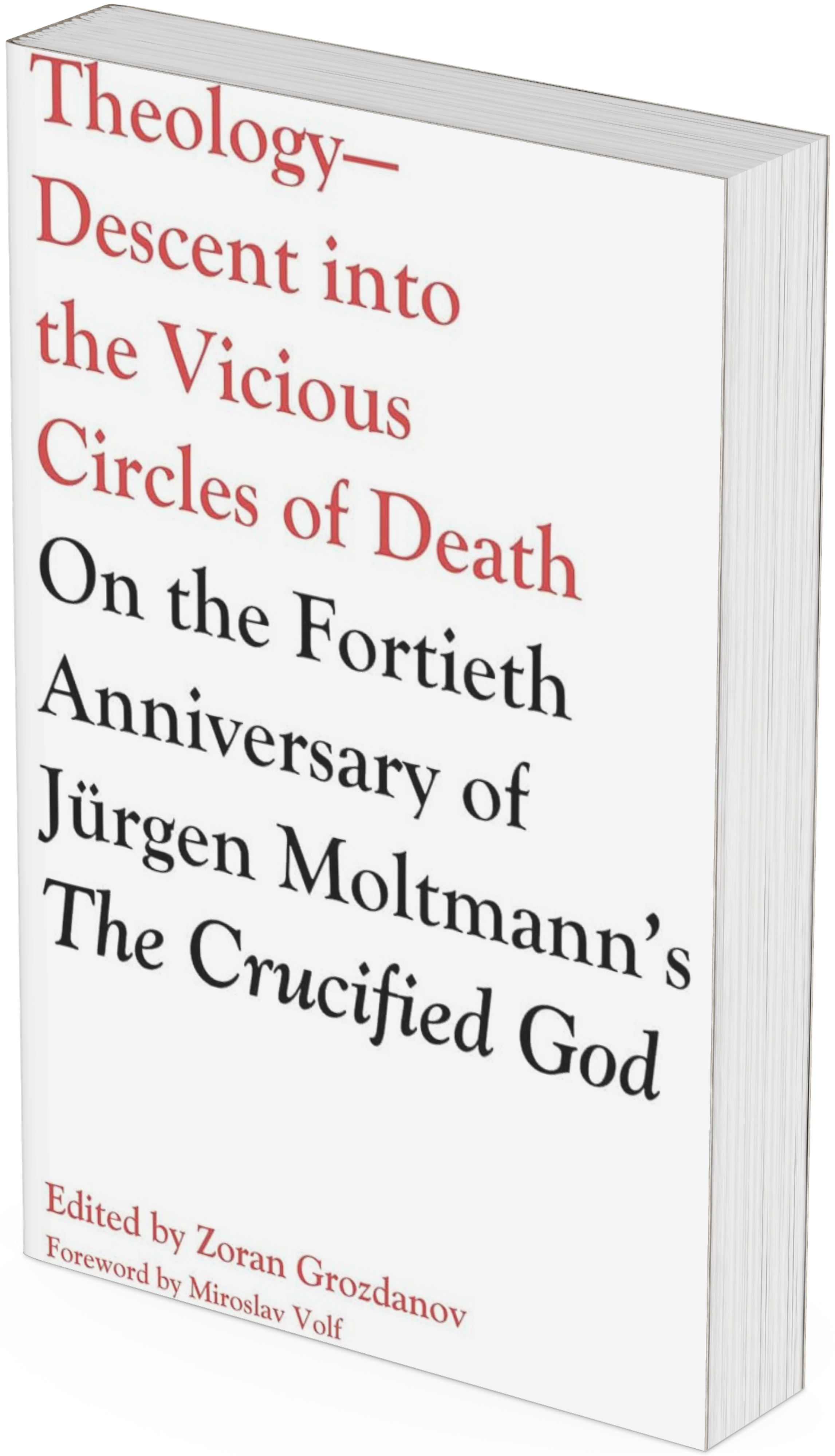
Zoran Grozdanov (ed.), Descent into the Vicious Circles of Death: On the Fortieth Anniversary of Jürgen Moltmann’s The Crucified God, Eugene, Oregon: Wipf and Stock, 2016.
“Like Moltmann, the authors of this book are faced with the question, where is God when the world falls apart? Like Moltmann, they are convinced that solidarity with victims is the key both to where God is when people suffer and where we ourselves should be. Like Moltmann, they believe that both politics and religion— so closely intertwined in the Balkans—must be called into question and recast in the light of God’s entry into the devilish circles of death. This book isn’t just a wonderful tribute to the fecundity of Moltmann’s thought, however. It is a contribution in its own right to living in the multiple conflicts of today, in a globalized world marked by contending particular universalisms that often turn violent.” (Miroslav Volf, Foreword to the U.S. Edition of Theology – Descent into the Vicious Circles of Death: On the Fortieth Anniversary of Jürgen Moltmann’s The Crucified God, Zoran Grozdanov (ed.), Wipf and Stock, 2016)
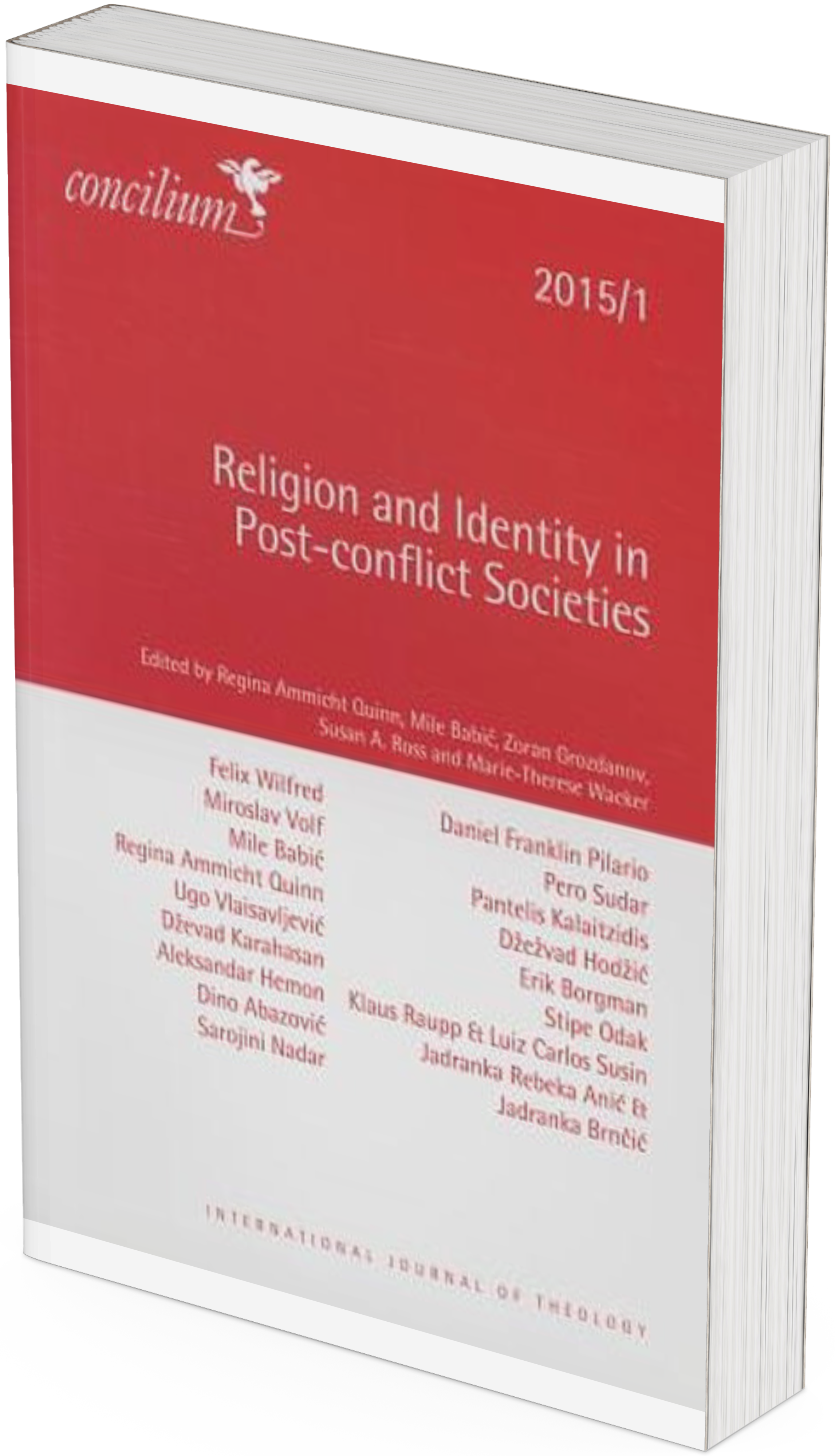
Regina Ammicht-Quinn, Mile Babić, Zoran Grozdanov, Susan Ross, Marie-Theres Wacker (eds.), Religion and Identity in Post-Conflict Societies, Concilium 1/2015.
We don’t need to go far back in history to find examples of the detrimental relationship between religion and political and social identity. Historically, closest to the European context is the conflict in the former Yugoslavia, where wars were not religious (although some historians and scholars argue otherwise) but were driven by the goal of territorial conquest and the creation of ethnically pure areas. In this conflict, religion often served as a driving force of the conflict—soldiers went to war with the blessing of weapons, not with the aim of ending the conflict but with the goal of victory over the enemy. The question arises of how religion can become and remain the primary driving force of nonviolent action, reconciliation, and the pursuit of justice in societies involved in war or significant conflicts. How can religion become a factor of healing in these societies? Due to this situation, Concilium held its annual meeting in 2014 in Sarajevo, a symbol and stage of the most significant conflict in Europe since WWII and where WWI began (1914-1918). Under the patronage of the city of Sarajevo, the conference on “Theology in Post-Conflict Society – Religion and Identity” was held, inviting various authors and experts of different worldviews and research areas who revised their presentations for this issue of Concilium, for which we are incredibly grateful.
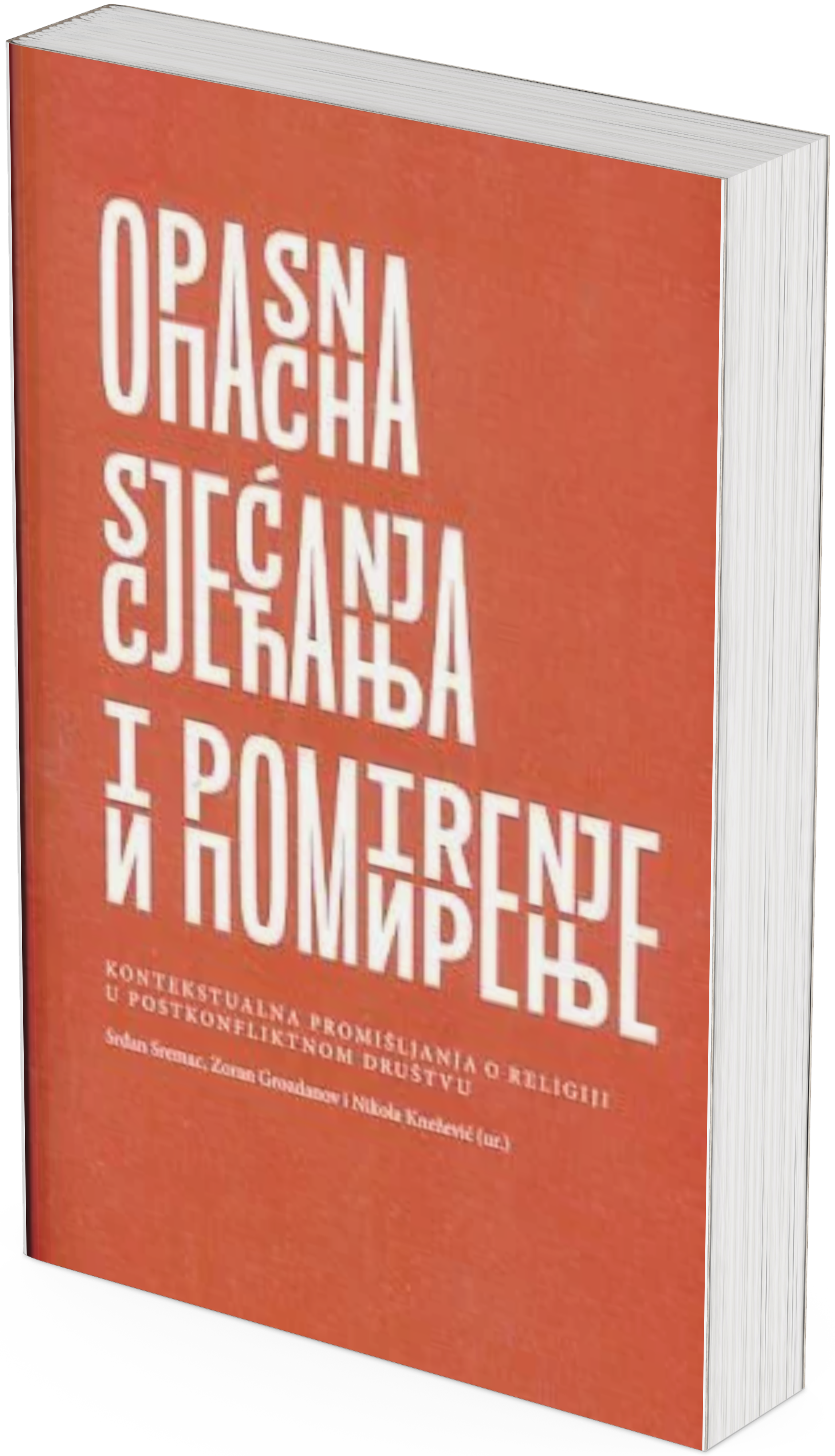
Nikola Knežević, Srđan Sremac, Zoran Grozdanov (ur.), Opasna sjećanja i pomirenje: kontekstualna promišljanja o religiji u postkonfliktnom društvu [Dangerous Memories and Reconciliation: Contextual Reflections on Religion in Post-Conflict Society], Rijeka: Ex libris, 2012.
An international scientific conference was held in Belgrade on June 10 and 11, 2011, on Dangerous Memories and Reconciliation: Contextual Reflections on Religion in Post-Conflict Society. In the last few years, much has been written in the former Yugoslavia about reconciliation, mainly from a socio-political perspective. However, the question arises whether everything has been said on this topic (however inexhaustible it may be), so every new attempt to address this issue is either a repetition of what has already been said or an essential continuous highlighting of the complexity of this problem. It must be acknowledged that little has been written (but much spoken) about the culture of memory in our region, especially in theological-religious discourse. The mentioned research deficit on this issue is probably a result of both the complexity of the subject itself and the underdevelopment and inertia of domestic theology and religious studies concerning this particularly demanding and challenging topic. This compilation attempts to address the mentioned gap and contribute to resolving the issues arising from the aforementioned challenges.
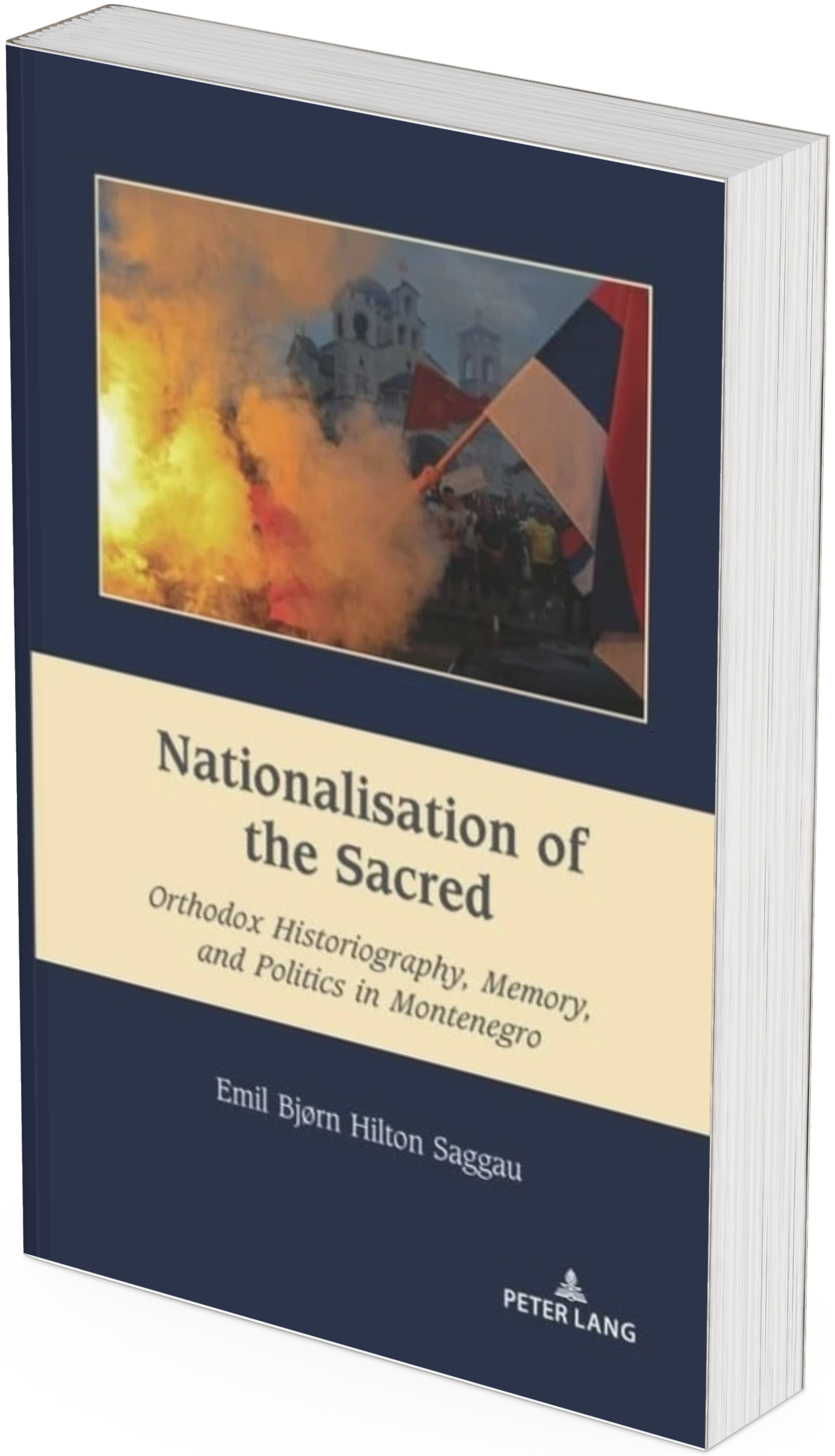
Emil Hilton Saggau, Nationalisation of the Sacred. Orthodox Historiography, Memory, and Politics in Montenegro, New York, NY: Peter Lang, 2024.
“In this book, Emil B. Hilton Saggau delivers a very convincing and concise analysis of the Montenegrin Orthodox Church in the context of both Serbian Orthodoxy and Eastern European post-communist developments. He uses this case study to explain how ecclesiology, historiography, and national identity come together in various complex ways to shape modern politics. By focusing on Montenegro, he provides a corrective to many studies of the Serbian Church and politics, which are limited to internal developments and the link with the Yugoslavian wars. Moreover, Saggau’s extensive knowledge of the theological background highlights another aspect often missing from treatments of religion and politics in the former Yugoslavia.” (Dr. Sebastian Rimestad, Senior Researcher in Religious Studies, University of Leipzig).
“This book focuses on the theology-based ideologies and ideology-based theologies, which drive socio-political developments in the Western Balkans. The author does not stop there, however, and goes beyond, as far as to Russia and Ukraine. Wars and other conflicts in the Balkans and other areas, where peoples hold Eastern Christianity as their faith and identity, may look like isolated spots of violence, but in fact they constitute interconnected patterns. The author of the book connects many dots and explores these patterns thoroughly. He extracts from them what can be identified as a civil religion of political Orthodoxy — a peculiar amalgam of religion and politics that permeates both secularised and still religious societies in Southern and Eastern Europe. This is an indispensable guide to the minefields of the Eastern Christian theopolitics. Without such a guide, one can hardly comprehend the most recent wars, including the ones in the former Yugoslavia, Georgia, and Ukraine.” (Cyril Hovorun, professor at Sankt Ignatios College, University College Stockholm)
Nikole Tesle 35, 22000 Šibenik, Croatia | info@itp.hr
Copyright©2024 | Design: Pavao Roca | Logo: Ante Filipović Grčić (2FG STUDIO)


